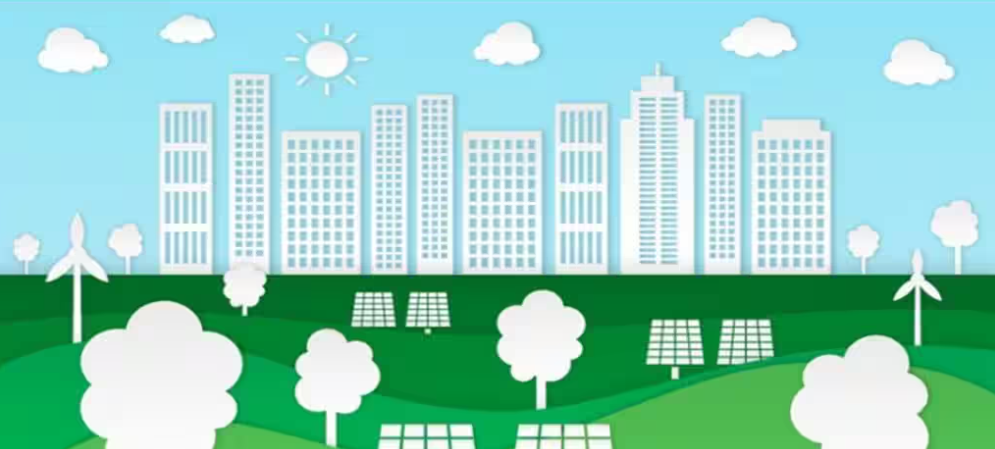With increasing awareness about environmental conservation and the pressing need to address climate change, developers, architects, and policymakers are reimagining the way buildings are designed, constructed, and operated.

The housing industry in India is undergoing a transformative shift towards eco-friendly and sustainable practices.
In India, where rapid urbanization and population growth pose significant challenges, the housing industry is undergoing a transformative shift towards eco-friendly and sustainable practices. However, home building continues to be an emotional decision – to own the roof over one’s head being the driving force.
With increasing awareness about environmental conservation and the pressing need to address climate change, developers, architects, and policymakers are reimagining the way buildings are designed, constructed, and operated. This paradigm shift not only benefits the environment but also promotes healthier living spaces and long-term cost savings for homeowners.
The housing industry in India is increasingly prioritizing energy efficiency and renewable energy integration to reduce reliance on fossil fuels and mitigate greenhouse gas emissions. The integration of renewable energy sources such as solar photovoltaics and wind turbines enables buildings to generate clean electricity onsite, thereby lowering operational costs and carbon footprint over the long term.
Water scarcity is a very real issue in many parts of India, necessitating sustainable water management practices in the housing sector. Developers are implementing water-efficient fixtures, dual plumbing systems for recycled water use, and greywater treatment technologies to minimize water consumption and wastewater generation. Rainwater harvesting structures, including rooftop catchment systems and groundwater recharge pits, are also being integrated into building designs to replenish local aquifers and mitigate stormwater runoff, contributing to water security and environmental sustainability.
Traditional construction methods often entail high resource consumption and carbon emissions. However, the housing industry in India is embracing sustainable materials and construction techniques to mitigate environmental impact. Bamboo, for instance, is gaining popularity as a sustainable alternative to timber for its rapid growth and low carbon footprint. Additionally, the use of recycled materials such as fly ash in concrete production reduces waste and conserves natural resources.
What is drastically changing the home development landscape in India, however, is the rapid adoption of offsite construction methods. Innovative construction methods like prefabrication not only minimize construction waste but also accelerate project timelines, demonstrating the feasibility of sustainable practices in the housing sector.
One of the most significant benefits of using precast elements to build houses is the quick turnaround time and high quality finishes that this method offers. Job sites no longer need to have teams of unskilled labour on site – executors are trained technicians for installation of precast elements and work during prescribed working hours. The quality of precast construction is far superior compared to conventional methods and over a period of time makes it more sustainable due to minimum maintenance costs.
In this method of construction, there is no utilisation of plywood and other wood for formwork, taking away the tremendous environmental impact. This also means that construction sites are clean and the generation of dust and construction debris is minimal.
All concrete casting is under controlled conditions in a factory that follows the strictest norms of EHS and plastering with cement mortar is eliminated thus reducing the quantum of material used, once more tying in neatly with sustainable practices.
With the requirement of housing and the massive thrust in the sector, our urban authorities have to adopt offsite methods – like the Government of Singapore – and mandate sustainable and effective methods like precast for all new developments.
The housing industry in India is undergoing a profound transformation driven by a growing commitment to eco-friendly and sustainable practices. From green building certifications to the integration of renewable energy and water conservation measures, as well as the use of modern methodologies like precast, stakeholders across the sector are embracing innovative solutions to address environmental challenges and create healthier, more resilient communities. By prioritizing sustainability in housing development, India can not only mitigate its ecological footprint but also enhance quality of life, promote economic prosperity, and pave the way for a greener, more sustainable future.
Article Credit: financialexpress